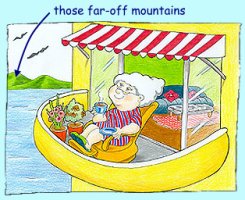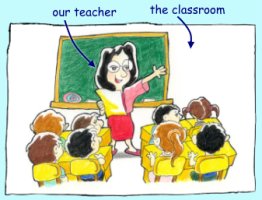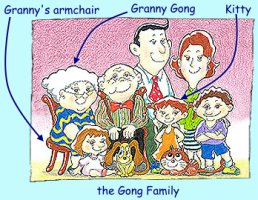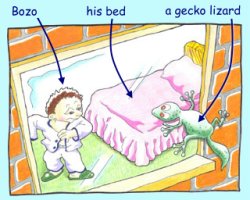| Who or what is involved? |
In our everyday lives we often refer to specific people, places, animals and things.
 |
 |
 |
 |
When referring to specific people, animals, places, events or things, we often use proper nouns:
Mr Gong
Barney the Dog
Victoria Harbour
Christmas Day
The Oxford Dictionary
When we use common nouns, we generally use a 'pointing word' (determiner) in front of the noun to signal which specific thing we are referring to:
| pointing word | example |
| indefinite article (a/an) | a friendly lizard |
| definite article (the) | the children's classroom |
| demonstrative (this, that, these, those) | those well-behaved children |
| possessive (my, your, his, her, our, their) | his pyjamas |
We usually refer to specific people, places and things in text types such as stories, recounts and particular descriptions.
To find out more about referring to specific people, places and things, go to the following sections. (To return to this page, use the back button on your browser.)
Grammar |
|
|
Here you will find more information about referring to specific people, places and things by using various grammatical features.
|
|
Text types |
|
|
Here you will find examples of text types that focus on specific people, places and things.
|
|
|
Tell me more ... Introduction |
|
||
To give us feedback about this section, click here or on the Comment button at the top of the screen.
If you have any questions about this section, visit the Language Corner.
If you have any questions or suggestions about how to teach this section, send a message to the Teaching Corner.